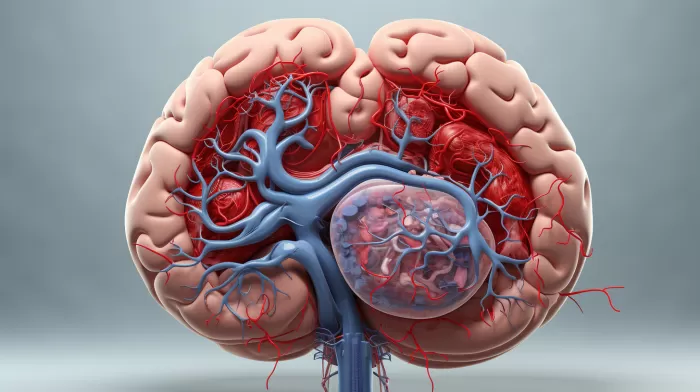Did you know that your kidneys play a vital role in preserving your mental abilities? Recent studies show that there’s a strong link between kidney function and cognitive capabilities, such as reasoning and memory. If you want to retain your mental sharpness throughout your lifetime, it’s essential to take care of your kidneys.
Keep reading to learn what researchers have discovered and how you can protect your kidneys – and your memory – for years to come.
The Surprising Connection Between Kidneys and Cognition
Kidneys and brains may not seem to have much in common, but the health of these two organs is intricately linked. As the study’s lead author, Adam Davey, Associate Professor of Public Health in Temple’s College of Health Professions and Social Work, explains, “The brain and kidney are both organs that are affected by the cardiovascular systems. They are both affected by things like blood pressure and hypertension, so it is natural to expect that changes in one organ are going to be linked with changes in another.”
During the five-year study conducted by scientists from Temple, the University of Maine, and the University of Maryland involving about 600 participants, the researchers discovered that as kidney function declined, cognitive abilities suffered as well. This means that if you have reduced renal function or chronic kidney disease, it’s not just your kidneys you need to worry about – but your brain too.
Why Kidney Health Matters for Your Mental Capacity
The kidneys are responsible for filtering out waste products and toxins from your bloodstream, balancing your body’s fluid levels, and regulating your blood pressure. When your kidneys aren’t functioning correctly, waste can build up in your body, causing a myriad of symptoms, including mental fog and forgetfulness.
Age can also be a factor when it comes to kidney function, as it tends to decrease naturally over time. “As we get older, our kidney function tends to decrease naturally, so if there’s an extra issue involved in renal function like chronic kidney disease, we need to know about it as soon as possible,” says Davey. “That is something that needs to be managed, just like you would manage hypertension.”
How to Maintain Your Kidney and Brain Health
Now that you know why keeping your kidneys healthy is essential for preserving your cognitive abilities, you may be wondering what you can do to protect these vital organs. Fortunately, you can do many things to maintain your kidney health and stave off cognitive decline.
- Hydrate yourself. Staying well-hydrated is crucial for keeping your kidneys functioning properly. Aim to drink about eight 8-ounce glasses of water a day, and always listen to your body when it signals that it’s thirsty.
- Watch your blood pressure. High blood pressure can damage your kidneys and increase your risk of cognitive decline. Keep your blood pressure in check by maintaining a healthy diet, exercising regularly, limiting sodium intake, and taking prescribed medication as directed.
- Eat a kidney-friendly diet. Consuming a diet low in sodium and phosphorus can help protect your kidneys. You should also avoid processed foods, as they can be high in added salts and other harmful ingredients.
- Quit smoking. Smoking harms both your kidneys and your brain, as well as wreaking havoc on your cardiovascular system. If you smoke, quitting is one of the best things you can do for your kidneys and your overall health.
- Maintain a healthy weight. Obesity not only puts a strain on your kidneys but also increases your risk of developing diseases such as diabetes and hypertension, both of which can harm your kidney function and cognitive abilities.
- Exercise regularly. Regular physical activity helps lower blood pressure, weight, and reduce your risk of chronic kidney disease. Aim for at least 30 minutes of moderate exercise daily to keep your kidneys and brain in top shape.
- Get regular check-ups. Regular health screenings can help detect kidney problems early, allowing you to take the proper steps to maintain kidney function and prevent cognitive decline.
Final Thoughts on the Kidney-Brain Connection
Your kidneys play a crucial role in preserving your memory and cognitive function, so do everything you can to protect these vital organs. By staying informed, hydrated, and maintaining a healthy lifestyle, you can give your kidneys – and your brain – the best chance at remaining healthy and functioning optimally throughout your life.



